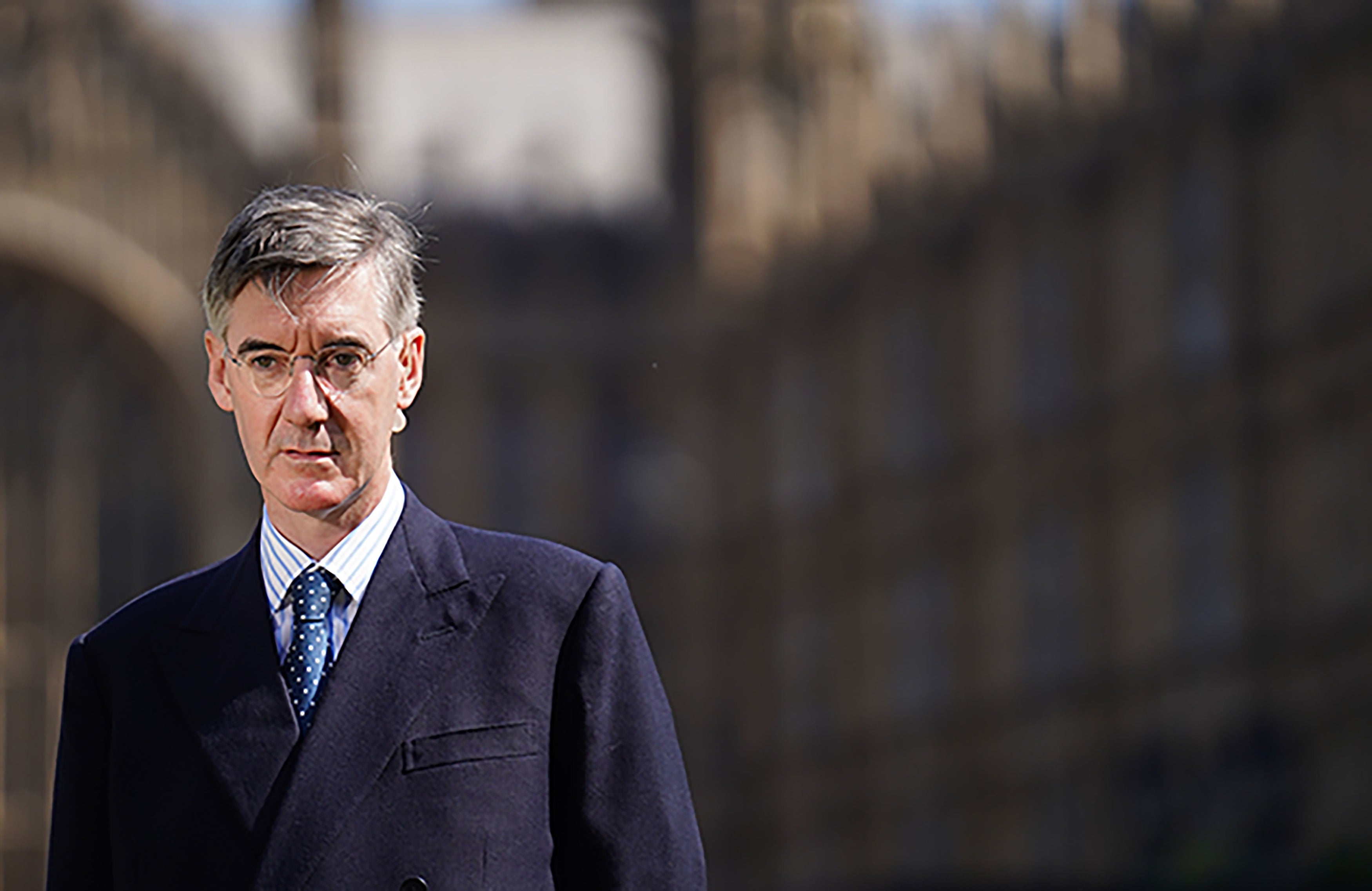
A chemical weapons expert has launched legal action against the government after he was banned from speaking at an event for criticising Tory policy.
Dan Kaszeta, an author and associate fellow at the Royal United Services Institute, had his invitation to speak at last month’s International Chemical Weapons Demilitarisation Conference withdrawn weeks before he was due to appear.
He was told he had been disinvited because civil servants had found social media posts criticising government policy, meaning that under rules introduced in 2022, he could not speak at the Ministry of Defence-run event.
The former US Secret Service employee and White House chemical weapons expert is among several specialists and academics barred from government conferences under the vetting scheme, which was drawn up under Jacob Rees-Mogg.
Mr Kaszeta has now triggered the first stage of a judicial review of the guidance, arguing that it is unlawful and was wrongly applied in his case.
“I am not seeking compensation,” he said. “I am acting in the public interest. I am hoping that I can get this ‘blacklisting‘ reversed and that this awful policy is removed.”
The guidance, called Due Diligence and Impartiality – Supporting and Protecting our Diversity Networks, was not made public until after Mr Kaszeta’s invitation to the chemical weapons conference was cancelled.
It states that to “ensure impartiality [civil servants] must carry out due diligence checks on all external speakers invited to events”, adding: “Networks and their members must complete such checks to avoid any invitations being issued to individuals and/or organisations that have provided adverse commentary on government policy, political decisions, approaches or individuals in government that could undermine our position on impartiality and create reputational damage. Commentary may have been made on social media or other outlets.”
It is unclear whether the guidance was intended to be applied to all government-run events, or may have been over-extended from internal “diversity networks” within the civil service.
In response to a parliamentary question last month, Cabinet Office minister Jeremy Quin suggested it targeted “abhorrent organisations” and people who “could cause embarrassment to the civil service”.

“Taxpayers’ money should not unwittingly be used to pay for speakers linked to abhorrent organisations or individuals who promote hate or discriminatory beliefs,” he added.
“We do not hold a central record of speakers identified as unsuitable, but I trust that the number will be very few.”
A pre-action protocol letter sent by Mr Kaszeta’s lawyers to the Cabinet Office asked for confirmation that he was not considered to “fall within the category of ‘abhorrent organisations or individuals who promote hate or discriminatory beliefs’”.
It argues that the guidance and its application to him was unlawful and “irrational”, and violated requirements under the civil service code to act “in a way that is fair, just and equitable”, and not “unjustifiably favour or discriminate against particular individuals or interests”.
The letter claims that the policy amounts to discrimination on grounds of belief, contrary to the Equality Act, and breaks Human Rights Act provisions on the freedoms of thought and expression.
Mr Kaszeta is a member of the Liberal Democrats, and his lawyers said there could be “no possible justification” for barring him from speaking over opinions that “could not conceivably be described as promoting ‘hate or discriminatory beliefs’, and bear no relevance to the subject matter of the conference”.
They have also demanded to see records relating to decision-making on the invitation and the drawing up of the guidance.
Mr Kaszeta is represented by Leigh Day partner Tessa Gregory, who said: “Our client is a world-renowned expert in defence against chemical and nuclear weapons but the government decided he should not address a civil service conference because on social media he criticised government policy in an entirely unrelated field.
“We consider that this decision and the guidance applied is unlawful as it is discriminatory, a breach of his right to freedom of expression and irrational.”
A Ministry of Defence spokesperson said: “We carefully consider all our speakers at any government-hosted conference to ensure that contributions to the event are provided in an appropriate manner.
“We cannot comment further due to legal process.”







